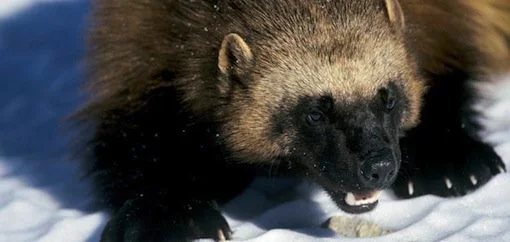Court Ruling: Wolverines Deserve Protections
Sandpoint, ID - Yesterday, a federal judge in Montana ruled that the U.S. Fish and Wildlife Service (USFWS) must reconsider protections for wolverines under the Endangered Species Act. The ruling applies to the estimated 300 wolverines that remain in the northern Rockies and north Cascades, including subpopulations that persist in some of Idaho's must rugged backcountry mountain ranges.The ruling reverses a 2014 decision by the USFWS that wolverines were not threatened by climate change and habitat destruction."This decision gives the wolverine a fighting chance at survival," said Earthjustice attorney Timothy Preso, who represented eight conservation groups in the case before U.S. District Court Judge Dana Christensen. "There is now hope for this icon of our remaining wilderness."Along with those seven other groups, the Idaho Conservation League petitioned the court to reverse an August 2014 decision by the USFWS that found that wolverines were not warranted for protection under the Endangered Species Act (ESA).The ruling by Judge Christensen rejected the USFWS's determinations that climate change, an extremely small population size, and genetic isolation do not threaten the wolverine's survival in the lower 48 states."We are pleased that the court sided with the wolverine," said Brad Smith, North Idaho director for ICL. "The wolverine is one of Idaho's rarest animals, with small remnant populations in the Selkirks, Cabinets, Pioneers, White Clouds and Sawtooths-some of Idaho's most majestic mountain ranges. Now, the focus should turn to working together to safeguard the habitat and conditions that wolverines need to recover."Today's ruling passes harsh judgment on the USFWS for a last-minute reversal. In February 2013 the USFWS proposed to list the wolverine as a threatened species under the ESA after the agency's biologists concluded that global warming was reducing the deep spring snowpack pregnant females require for denning.But state wildlife managers in Idaho, Montana and Wyoming objected, arguing that computer models about climate change impacts are too uncertain to justify the proposed listing. Then, in May 2014, the USFWS Regional Director Noreen Walsh ordered her agency to withdraw the listing, ignoring the recommendations of her own scientists. The agency formalized that withdrawal in a final decision issued in August 2014.In the strongly-worded ruling, Judge Christensen addressed the question of why the USFWS flip-flopped on this key conservation issue: "[T]he Court suspects that a possible answer to this question can be found in the immense political pressure that was brought to bear on this issue, particularly by a handful of western states. The listing decision in this case involves climate science, and climate science evokes strong reactions."The judge also directed the USFWS to act promptly to correct its erroneous findings: "It has taken us twenty years to get to this point. It is the undersigned's view that if there is one thing required of the Service under the ESA, it is to take action at the earliest possible, defensible point in time to protect against the loss of biodiversity within our reach as a nation. For the wolverine, that time is now."The other groups represented by Earthjustice in the case include Center for Biological Diversity, Conservation Northwest, Friends of the Clearwater, Greater Yellowstone Coalition, Jackson Hole Conservation Alliance, Klamath-Siskiyou Wildlands Center and Rocky Mountain Wild.

